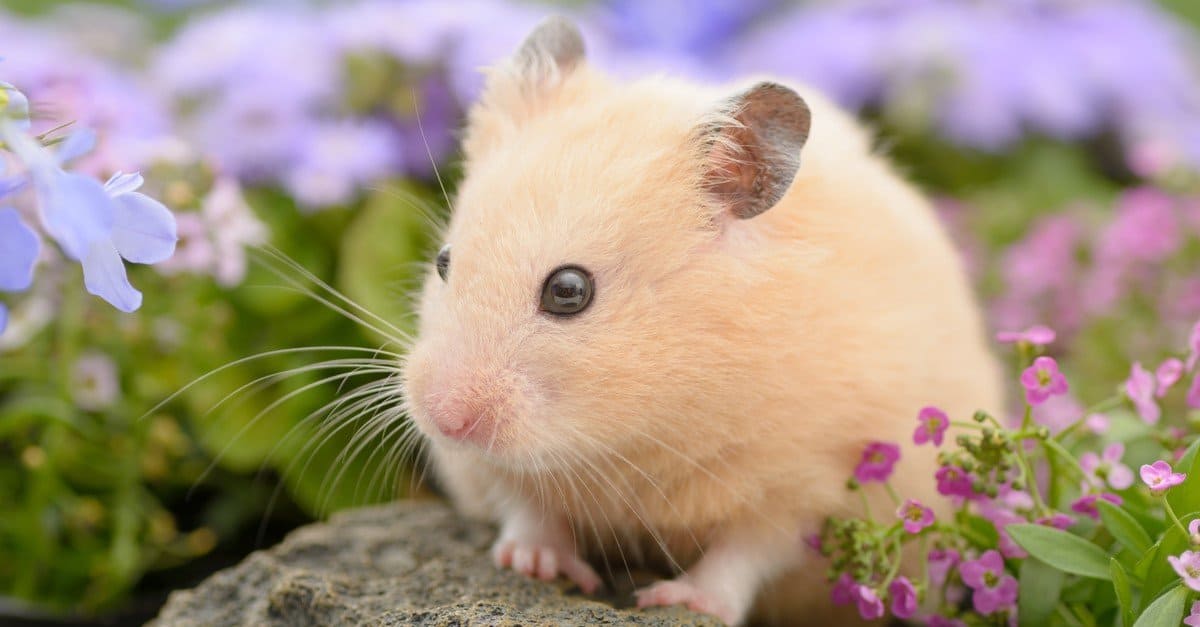A hamster basking in the sun is a sight you’re unlikely to see, even if you’re a proud hamster owner. These rodents are nocturnal creatures who avoid bright, sunshiney days. They can play, eat, mate, and do everything else they need to do when it’s pitch black. So, you might wonder, does that mean hamsters can see in the dark?
No, hamsters cannot see clearly in the dark. They have poor vision most effective in low-light conditions like dawn and dusk. They can roam around at night because they have keen noses and ears and sensitive whiskers that let them know where they are in relation to objects.
Here’s a more in-depth explanation.

Hamsters have notoriously bad eyesight.
©stock_shot/Shutterstock.com
Hamster Eyesight
Hamsters can’t see in the dark, and turning on a light wouldn’t help very much. Even in perfect low-light conditions, hamsters can only see a short distance before their face.
Hamster eyes are quite different than human eyes, with the former being rod-dominant. One study found that the rod-to-cone ratio in hamster retinas is 32.24:1, compared to 20:1 in human retinas.
Rod dominance means that hamsters can’t see in great detail or resolution and also can’t see most colors. So your hamster doesn’t recognize your sweet smile or apple red t-shirt when you approach the cage. It’s your voice and unique smell that snags their attention.
Hamsters in the Day
Ideally, a hamster will sleep most of its day, whether living in the rough outdoors or a cozy cage.
You might see your hamster burrowed in their bedding or snug in their nest box. Avoid placing lamps next to the cage because too much light can disrupt their natural rhythm. Don’t worry too much about keeping the cage covered, however. Hamsters don’t need total darkness to sleep.
Hamster at Night
If the day is for sleep, the night is when hamsters come alive. They’re far more active when the sun goes down. For instance, it’s normal for hamsters to eat 100% of their meals at night.
Anyone who has a hamster becomes familiar with their nighttime antics. Running in their exercise wheel or across the bedding, playing with their toys — these are familiar sounds for hamster owners, and they almost always occur at night.

Wild hamsters are nocturnal, too.
©Anastasia Solovykh/Shutterstock.com
It’s easy to mistakenly believe that hamsters can see in the dark because they’re so comfortable and agile with no light. Yet, these skills actually come from the hamster’s other senses. Their whiskers, for example, have mechanoreceptors that send signals back to the brain at the lightest touch. These signals help the hamster orient itself.
Their powerful hearing and strong noses become their guide when it comes to finding food and avoiding predators.
Thank you for reading! Have some feedback for us? Contact the AZ Animals editorial team.








